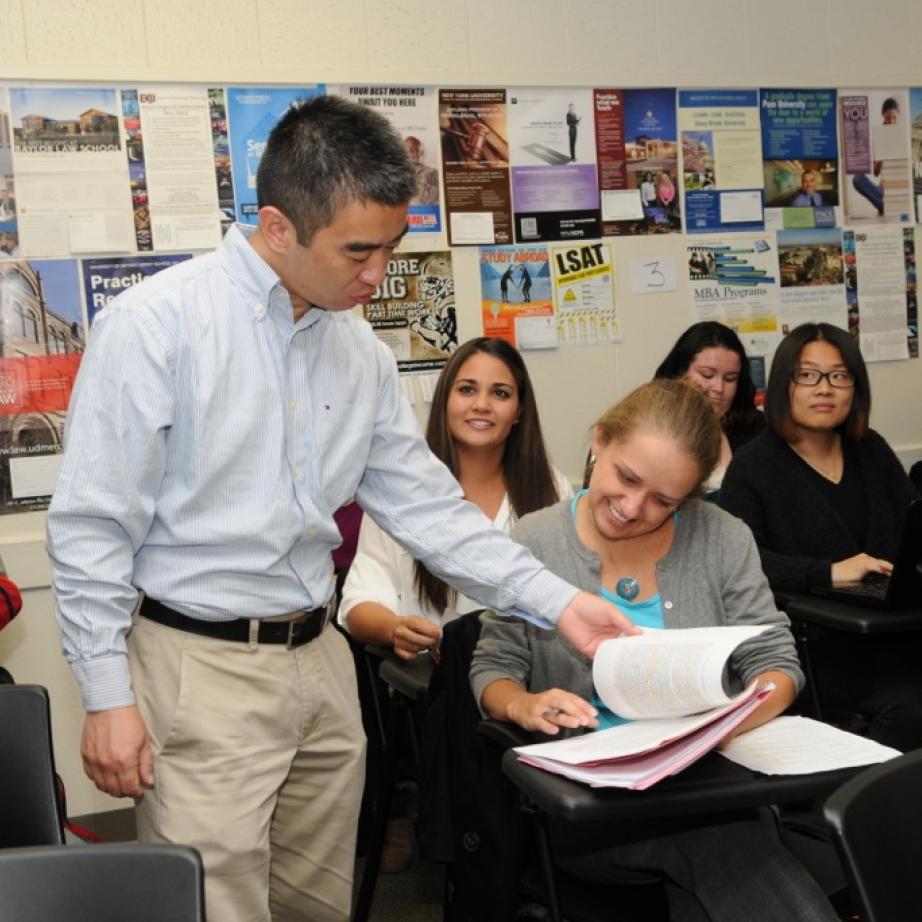Thursday, Oct 24, 2013
Rider’s new Master of Business Communication program has students leveraging communication strategies and the fundamentals of business for success in the marketplace.
From thinking and writing strategically to crisis communication and integrating current communication technologies, students in the new Master of Business Communication program, or M.A.B.C., are learning to leverage communication strategies and the fundamentals of business for success in the marketplace.
With 28 students enrolled, the graduate program has had a healthy start, according to Dr. Jonathan Millen, associate dean of Liberal Arts and Sciences. “Geared toward working adults, the program is a creative collaboration of the Department of Communication, Journalism, and Media and the College of Business that meets the needs of today’s businessperson,” Millen said.
The degree, earned through the Department of Communication, Journalism, and Media, is relevant to almost any career. Current students are working in public relations, public affairs , IT and human resources.
Rider’s accessibility to New York City and Philadelphia, the convenience of evening classes while working full time, and the opportunity to develop higher-level communication and leadership skills that can be applied at the office are appealing to prospective students.
“Our studies have revealed that those hiring in all areas of business are looking for effective communicators,” explained Dr. Pamela Brown, chair of the Department of Communication, Journalism, and Media. “The message from executives is clear: They can teach employees to do the job but they can’t teach them how to be strong communicators.”
The M.A.B.C addresses that need with a heavy emphasis on visual, oral and written communication skills; a requirement for completing two M.B.A. courses; and instruction in gathering, analyzing and using data in a way that is valuable in any business. In the curriculum’s capstone course, which combines research and on-site interactions with selected businesses in the region, students apply what they’ve learned in class and develop fresh ideas to enhance corporate communications.
“We recognized that there was not a communication program in the area with a true business component,” Brown said. “So, we’ve set a goal to develop a reputation for offering a high-quality degree in business communications. It’s the combination of scholarly research and theory and the real-world application of that material that brings value to the master’s program.”
Last summer, Brown turned real-world news issues faced by professionals on the job into exercises in her Legal and Ethical Issues for Professional Communicators class. “The students applied theory and research to tackle the problems that massive media coverage of bad passenger experiences created for the cruise industry,” she explained.
Michelle Bucknam ’08 of Hammonton, N.J., who earned a B.A. in Journalism and now works in the marketing/communications field, chose the program because she felt the communications/business combination would be “a desirable master’s degree for the career advancement I was seeking.”
David Pavlak ’13 of Bloomingdale, N.J., who will complete the program in the spring, believes that the advanced degree will set him apart from the competition.
“I have become more well-rounded in communications,” Pavlak explained. “And the business component has added to the depth of my knowledge, both certain to benefit me in my career.”

